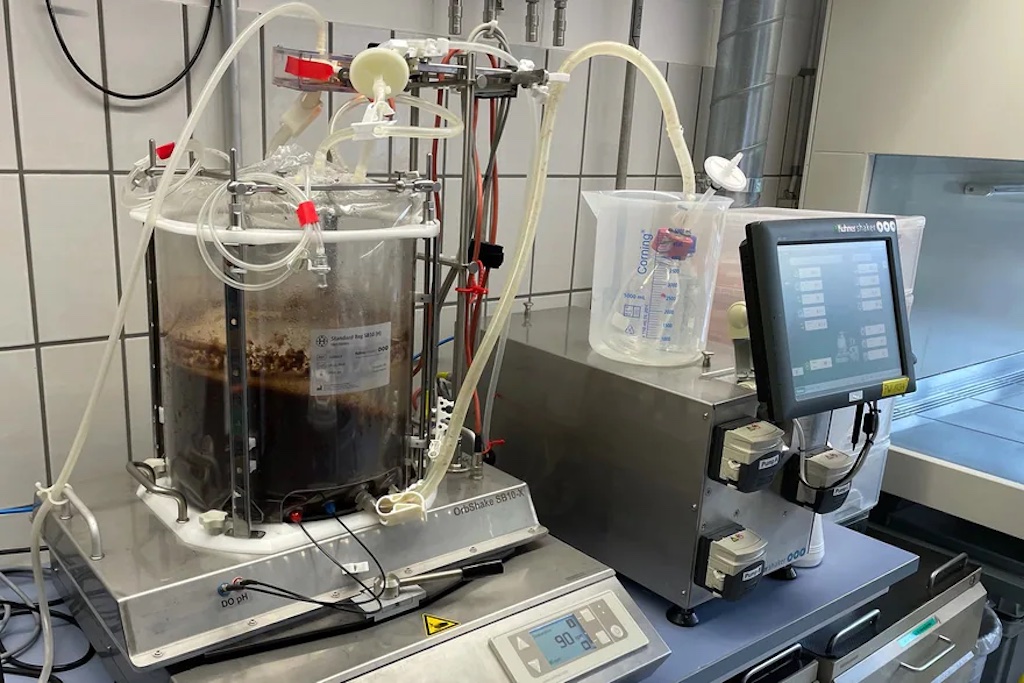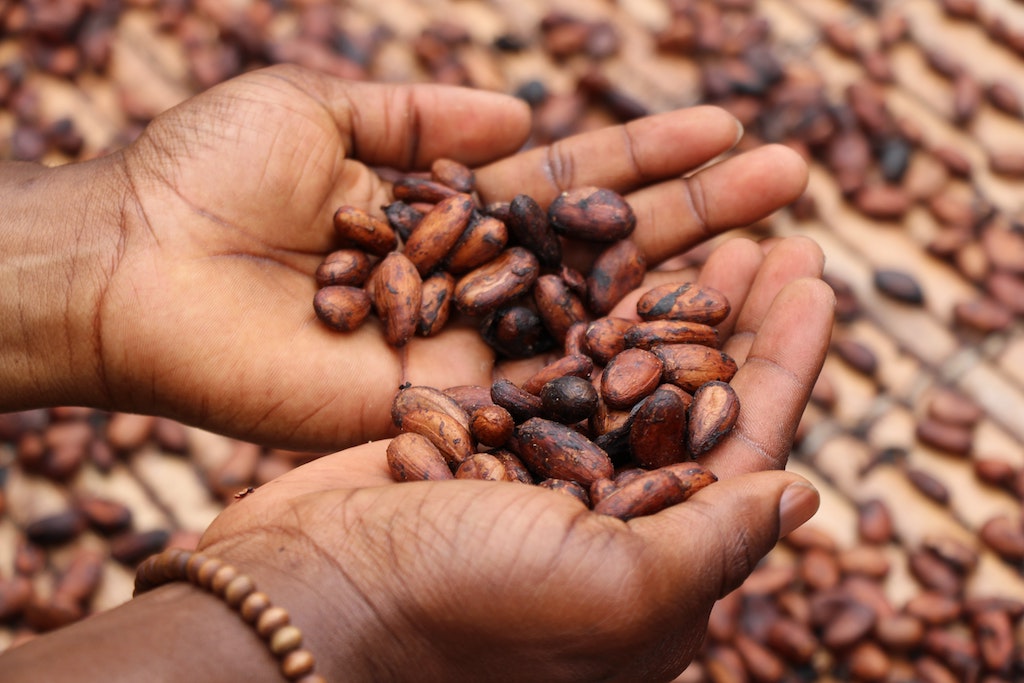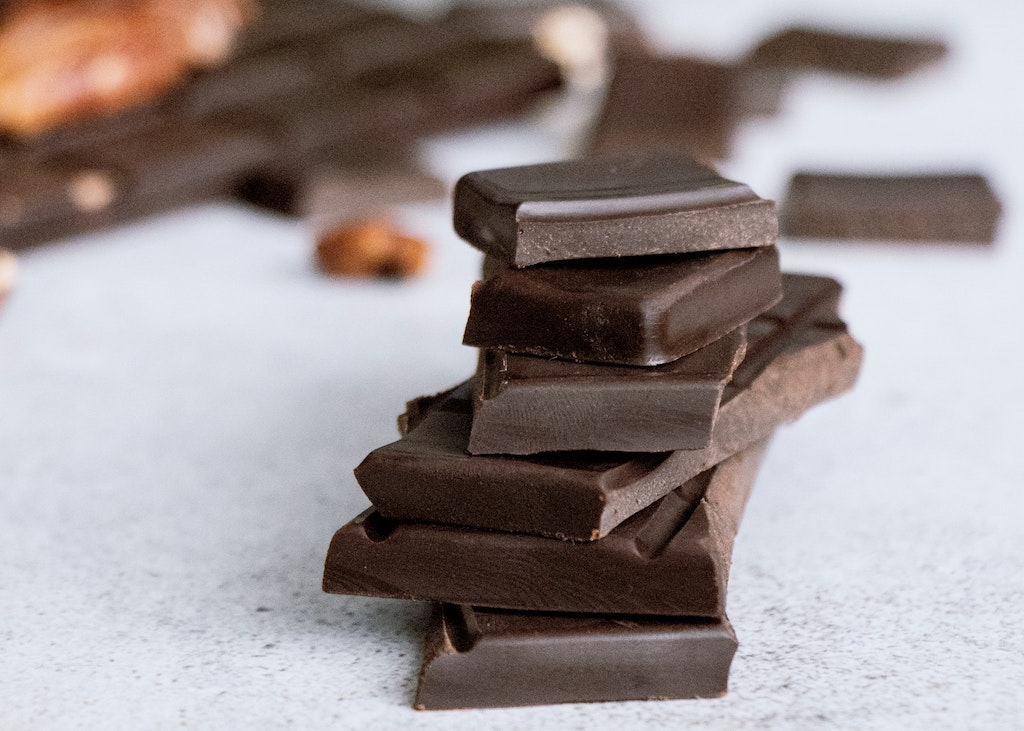4 Mins Read
You might have heard about lab-grown meat. But what about lab-grown chocolate? Researchers based in one of the world’s chocolate hubs, Switzerland, have made chocolate in bioreactors for the first time. And it could just be the answer to getting our sweet fix ethically and sustainably.
Scientists at the Zurich University of Applied Sciences (ZHAW) have just made lab-grown chocolate. They recently gave reporters at Swissinfo a peek into their operations, showing how the team is growing chocolate directly from cell cultures. According to the team, it’s the first time chocolate has ever been made this way.
Growing chocolate in a lab
The team is led by Professor Regine Eibl, who heads the cell-culture division at the ZHAW. Eibl works with Tilo Hühn, a well-known food scientist in the chocolate and wine world. Hühn came up with the idea of trying to extract cell cultures from cocoa beans to produce polyphenols, the heart-healthy compound rich in dark chocolate.

They cleaned the surface of the cocoa, extracting part of the bean to be incubated in culture medium at 29°C in a completely dark environment. After 3 weeks, a “callus” grows over the bean’s surface, and the researchers put it into a suspension culture. In the bioreactor—Eibl calls it a “tank”—it then multiplies to make chocolate.
“We want to see what the future of foodstuffs out of a tank might look like,” Hühn told Swissinfo. He added that this way of making chocolate won’t “take up so much of the environment and leave[s] a very light footprint.”
The problem with chocolate
Everyone wants to get their chocolate fix, but the reality behind most chocolate production isn’t so sweet. Over the past years, awareness has grown over the role of chocolate in fuelling unsustainable practices like deforestation.
Around 70% of the world’s cocoa is grown in West Africa, but the fast-rising demand for chocolate means that farmers are clearing tropical lands to plant new cocoa trees. In the Ivory Coast, as much as 70% of the country’s illegal forest clearing is linked to cocoa planting.
Then, there are human rights issues too. Child labour is rampant in the chocolate industry, with as many as 2 million children a year engaged in dangerous labour conditions throughout Ghana and the Ivory Coast.

Investigations have revealed how certifications like Fair Trade simply don’t do enough to ensure brands aren’t working with abusive suppliers. As consumers, it is difficult to figure out whether our chocolate is really ethically sourced.
Read: Fairafric founder Hendrik Reimers talks the truth behind your Fairtrade chocolate
Is lab-grown the solution?
For Hühn, directly growing chocolate bars out of cocoa cells could be the answer to the multitude of problems related to conventional chocolate. “The way we are going here could lead to a number of problems being solved.”
Beyond being deforestation and child labour-free, lab-grown chocolate also requires a fraction of water resources and eliminates pesticide use.
But he’s clear that their goal isn’t to displace the critical income that cocoa farmers rely on.
“Our primary goal is not to bypass agriculture and deprive farmers of their living. It is to test alternatives. We will not be making traditional production of cocoa beans obsolete, nor would we want to.”

More cell-cultured confectionery innovation
The team in Switzerland aren’t the only scientists working on lab-grown chocolate. In California, one startup is using cellular agriculture to create bars that are climate-friendly and taste better.
Called California Cultured, the food tech uses novel plant stem cells grown in a low-cost food grade plant cell media. Their proprietary process results in a chocolate that “highlights the best flavours and functional compounds” and reduces the need for more added sugar.
Investors are already keen to back the one-year-old startup, recently attracting funds from IndieBio and SOSV.
Lead image courtesy of Unsplash.



